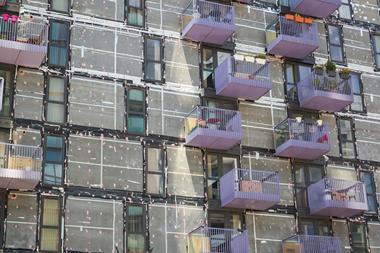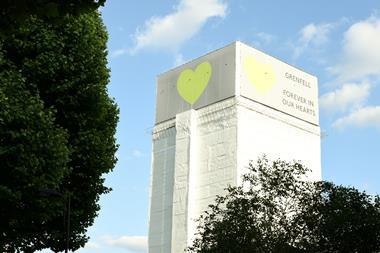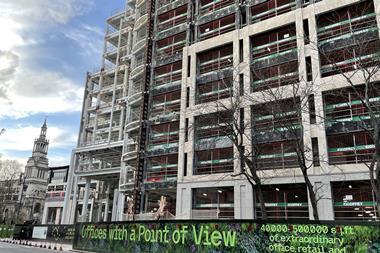We all knew it was coming. The answer to the thorny question over who should pay to remove unsafe cladding from residential blocks in the wake of the Grenfell Tower tragedy was never the leaseholders.

This week’s announcement by Michael Gove that developers will have to foot up to £4bn of the bill finally absolves them of a responsibility they should never have had, hopefully putting an end to the prolonged nightmare of living in unsafe, unsellable properties.
But making developers pay while the government quietly exits stage left, swerving any responsibility it might itself have? Really? It is little surprise that it is accused of “cheap shots” and “arse-covering” in our cover story.
As I warned previously on this page, the fear was always that developers would be made to carry the cladding can, and some would say that not only should they have seen it coming, but that they had it coming. Our very own Anviksha Patel is of that view. She argues that if more developers had voluntarily coughed up money for cladding repairs – as the likes of Taylor Wimpey have – then maybe the government would not now be threatening to resort to legal action if they do not “do the right thing”.
I am more cynical and suspect that even if they had forked out, it would not have made any difference. Developers are increasingly being cast as the villains of the piece and with Covid continuing to squeeze government coffers, it was nailed on that government would see them as another easy “magic money tree” to shake alongside banks and energy companies.
Unfortunately, the fruit is not as low hanging as it appears – and the trees are not necessarily the right (or only) trees. We are all aware of the polluter pays principle, but will the polluter pay in this instance? Who is the polluter? The companies that own the properties now, or the companies that built them? Could current owners launch court action against the companies they purchased from in a bid to recoup their losses? Will this turn into a PPI-scale scandal?
What about all the other parties that were involved: the construction companies, the building material suppliers, the regulators, the government? As London Square’s Adam Lawrence points out, safety standards are set by government – and were set on Gove’s party’s watch. Shouldn’t it bear some responsibility if those standards were met? Shouldn’t it first target those that failed to meet them, the real villains of the piece?
The whole issue is a legal and moral minefield, one that is likely to take a long time to navigate, if it can be navigated at all. Developers, which already face the Residential Property Tax, have until early March to create a fully funded plan of action to help. Meanwhile, some of the parties that should be held to account – including the government – get away scot-free and attention continues to be diverted from non-cladding-related fire and safety issues, such as compartmentation, poor-quality fire doors and timber balconies.
This is not just about cladding. It’s about building safety. It is not just developers that are to blame. Some are not to blame at all. There are no easy or quick solutions. There may be no fair solution at all. But if there is a fair solution, it will be one that sees responsibility shared by the regulatory and commercial entities involved – and not one that absolves not just the leaseholders but the real culprits of responsibility.





























No comments yet